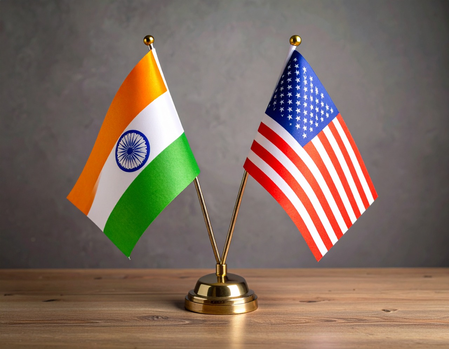
New Delhi, July 26 (IANS) As India continues to sign trade deals at a blistering pace, the latest one with the UK, the much-awaited pact with the US is yet to see the light of the day amid hectic negotiations from both sides.
According to an article in Newsweek, there is still no trade deal with the United States despite some optimism voiced by US President Donald Trump and India.
Sanjeev Sanyal, a Member of Prime Minister Narendra Modi’s Economic Advisory Council (EAC), was quoted as saying in the report that “We wish to engage with the world, including the West, on equal terms”.
“We understand that Western countries have their interests, but we also have ours. So, we will speak up for our interests. This does not mean that we won’t be willing to engage or make reasonable trade-offs,” he told the publication.
According to Lisa Curtis, director at the Centre for a New American Security, the Trump administration would be wise to make concessions for India in the interest of the larger strategic partnership.
“India’s successful trade deal with the UK demonstrates that it has global trading options and that it is not desperate enough for a trade deal with the United States to open up its agricultural sector,” Curtis was quoted as saying.
Meanwhile, India has just resumed offering tourist visas for Chinese citizens, ending a five-year freeze.
“China and India should adhere to the direction of good neighbourliness and friendship,” Chinese Foreign Minister Wang Yi said during a meeting with his Indian counterpart S. Jaishankar this month.
These moves reflect India’s deepening role as a global swing power, according to the report, citing geopolitical analysts.
The landmark India-UK FTA is seen as much about geopolitics as about goods and services.
According to the report, the deal was not “rushed” and the “negotiations began in May 2022, took three years, and involved tough domestic balancing acts, protecting farmers, small businesses, and service sectors on both sides”.
This agreement is more than just trade, UK opposition Conservative MP Bob Blackman told Newsweek, adding that it reflects a shift in how both nations perceive power and partnership.
–IANS
na/svn



